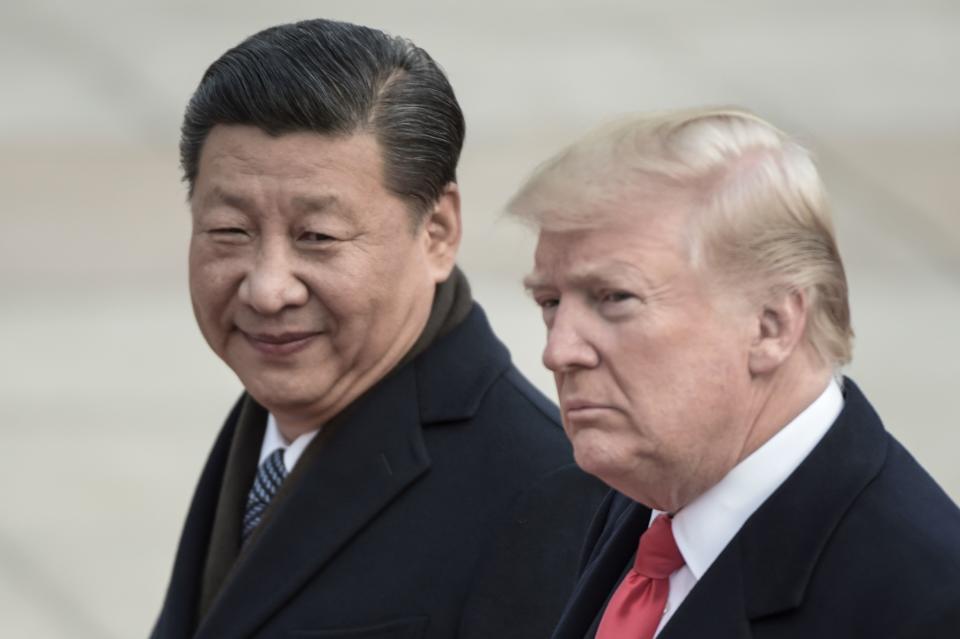One word correctly describes America's relationship with China

I was having dinner with one of Wall Street’s Masters of the Universe recently, and he told that he had just been in Beijing and had read senior Chinese leadership the Riot Act.
“Oh really,” I said. “And exactly what did you tell them?”
He leaned in and whispered: “I told them that they had deceived us, that they were now our Russians.”
Meaning, I assume, that the Chinese are now our arch enemies. This is unfortunate. However, instead of ‘enemy,’ there is a more accurate word that describes America’s relationship with China: ‘rival.’ I’ll expand on that a little later.
Trump has a point
It’s true because some Americans — including prominent ones — think China is the enemy. And it’s unfortunate, not only because it applies the framework of a previous relationship to a current one (usually not a good thing) but also, more importantly, because it’s off-base.
First, we should all recognize that Donald Trump has a point. Our trade relationship with China is flawed. Its current state reflects a time when China was a much smaller, developing nation. Back then, say circa 2000, we were more than willing to overlook trade imbalances and one-sided practices like mandatory joint ventures. Even intellectual property theft was grudgingly tolerated because of the upside, which was a massive and cheap manufacturing base for American companies and huge demand for U.S. Treasury securities. Who cares if the Chinese stole some schematics, they don’t really have a military anyway, right?
More recently, as these grievances became less tenable, Chinese leadership insisted they would change their ways.
Flash-forward to today, and it becomes much more difficult to justify this status quo. First, the Chinese economy is no longer a pipsqueak. It’s the second largest in the world with a bullet (with a GDP now at $14.1 trillion, up from a trillion at the turn of the millennium.) China’s economy is poised to exceed US GDP (now $20.4 trillion) in less than 15 years. Sure China’s per capita GDP is only $10K versus the US at $63K — but that gap is closing fast too.
Second, the Chinese did not keep their promises in terms of ending the trade imbalance and the joint venture requirements, rolling back one-sided tariffs and putting an end to IP theft. That’s caused even a number of heretofore China bulls, like Blackstone’s Steve Schwarzman and former Treasury Secretary Hank Paulson, to become panda bears, to a degree.
In a speech on November 7 at the Bloomberg New Economy Forum in Singapore, Paulson noted that, “The United States played the decisive role in facilitating China’s entry into the World Trade Organization. Yet 17 years after China entered the WTO, China still has not opened its economy to foreign competition in so many areas. It retains joint venture requirements and ownership limits. And it uses technical standards, subsidies, licensing procedures, and regulation as non-tariff barriers to trade and investment. Nearly 20 years after entering the WTO, this is simply unacceptable.”
Paulson goes on to say that American business interests have become “discouraged” by this “Faustian bargain” and that attitudes have turned “negative.” China’s “failure to open up have contributed to this more confrontational view.”
Third, there’s new leadership — on both sides. Trump has not only called China out in a way that other presidents haven’t, he has also taken much stronger action. (To be clear, Barack Obama was able to quell Chinese IP theft for a time, though they reportedly ramped up those efforts after Obama left office.)
In Xi Jinping, China has a different leader too, one who is much more comfortable with a muscular posture than his predecessors and, of course, has a bigger, more powerful economy to back him up. Along with stamping out corruption (along with potential enemies some say), Xi has increased government control and scrutiny over the internet, media and dissidents. He has expanded China’s military footprint. Economically, he is driving the geographically expansive Belt and Road project as well the Made in China 2025 plan which aims to step up his nation’s manufacturing and technology.
‘Rival’
So with all this, is my dinner partner correct? Is it accurate to suggest that China is our enemy?
I would still say no. I think the word that characterizes our relationship much more accurately is ‘rival.’
Let me explain how the words ‘enemy’ and ‘rival’ are different in significant ways. First, it’s true that not all rivalries are created equal. There is a spectrum of rivalry — from ‘bitter rival’ to ‘friendly rival.’ I would argue we’re somewhere in the middle right now with China.
With an enemy, however, there is little room for cooperation or even improvement in the relationship until one party is defeated. Going back to my Wall Street friend’s comments, think of the U.S. and the Soviet Union. (Or Russians as he put it.)
Of course there are so-called frenemies, but from my experience in business, I’m not a big believer in that.
Given the friction and discomfort we are experiencing right now in the U.S.-China relationship, I think it’s important for us to characterize our current state of affairs accurately.
I feel strongly that “rival” and not “enemy” is the right describer.
Remember what they told you when you were a little kid: Words matter.
—
Andy Serwer is editor-in-chief of Yahoo Finance. Follow him on Twitter @serwer
Read more:
